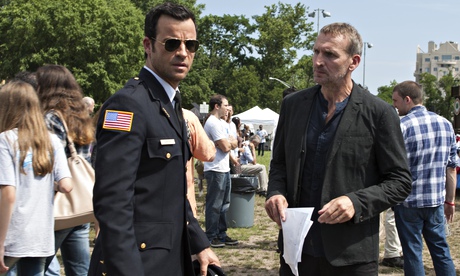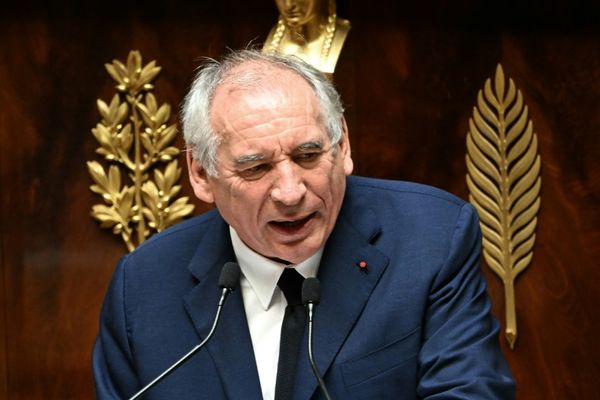
Disadvantaged by a title that makes it sound like a recessionary cookery show, The Leftovers is in fact the most mindbending and deeply tragic drama on HBO’s current slate. Its simple concept is this: a rapture-like event (branded the “sudden departure”) has caused 2% of the world’s population to vanish. That’s 140 million gone, just like that, without explanation or forewarning.
The money shot of the opening episode takes place in an unassuming parking lot: a hassled suburban mum turns to address a crying tot in the car and finds an empty baby seat. As she gets out and starts yelling her child’s name (“Sam? Sam? SAM?!”), we see a suddenly unmanned shopping trolley roll into another car, setting off its alarm, and ours. The voices of the instantaneously bereaved rise in panic. It’s the most compelling and disturbing opening I can remember since TV got clever, around the millennium.
Developed by Lost co-creator Damon Lindelof in conjunction with Tom Perrotta, whose novel provides the basis for the first season, The Leftovers takes a big event, which asks big questions both practical and theological, and micromanages it down to the story of one small town – Mapleton, New York – three years later. It’s an aftermath story set in a culture where closure is a basic human right. Sleepwalking police chief Garvey (Justin Theroux) has lost his wife (Amy Brenneman) to a silent secular cult who chain-smoke, wear white and threaten the peace. Violence is never far from the surface in The Leftovers.
Revelations come at a steady rate thanks to expertly rationed use of flashbacks (something Lindelof perfected on Lost). A heartrending, tumbling piano motif by composer Max Richter – augmented by existing tunes by the likes of James Blake – adds to the unease. Teenagers lock each other in an abandoned fridge for post-departure kicks. A baby Jesus is kidnapped from a nativity crib. Ownerless dogs roam feral. When Garvey, who is supposed to shoot the ex-pets, rescues one and tames it instead, you can read it as a kindly act of restoration by a self-doubting man of order, or as a symbol for something else. Essays should be handed in at the end.
Directed by the eminent likes of Peter Berg (Friday Night Lights), Carl Franklin (House Of Cards) and Mimi Leder (ER), it’s cast out of the top drawer too: actors you already know (Christopher Eccleston plays a priest, Liv Tyler is a cultist, Scott Glenn is Theroux’s sectioned dad), and others who have found their calling card here: Carrie Coon, whose Nora lost her entire family, and takes centre stage in the pivotal episode six, is now the show’s secret weapon. It would be unfair to talk about season two (airing on Sky Atlantic), although if anything it is even deeper and stranger, and – free of the novel’s ties – audaciously opens in the late Pleistocene era (that’s what I call a prologue). The New Yorker’s enamoured TV critic claims The Leftovers can’t be binge-watched, as the viewer requires a week between episodes to recover.
Despite hints of levity – we learn from an early news report that departed celebrities include Condoleezza Rice, Bonnie Raitt, Salman Rushdie and Pope Benedict – this is surely the saddest show on TV. Of a coincidental thematic piece with French zombie chiller The Returned, in which a small population deals with the disappeared coming inexplicably back, The Leftovers credits us with patience and intelligence, and answers questions weeks after they were first posed, and sometimes not at all. But mostly it assumes our empathy for the grief-stricken. Sam? Sam? SAM?!







